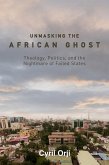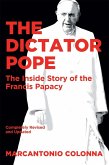This book addresses the issue of Christianity in public life in China through methodological and constructive approaches. It aims to answer the following questions: How does Christianity, with its moral and spiritual resources, engage in and contribute to public life in China? How does Christianity operate amidst a background of religious diversity, cultural and social dynamics, and political realities in China? The distinctive contribution of this book is that it moves beyond simple description and evaluation of what is happening in Chinese Christianity toward a constructive theology for the distinctive realities of Chinese culture, society, and politics. This book proposes Christian public responsibility in order to identify the moral problems in Chinese public life. It attempts to enhance a public face of Christianity in China theologically and ethically by activating Christian resources in response to public life and highlighting Christianity's moral impact on the state and civil society without "the imposition of confessional bonds" or "the exercise of authoritarian control." (quoted from Abraham Kuyper).
This book relies on both methodological and constructive approaches to define the meaning of public theology while making theological efforts to engage in public issues constructively in the Chinese context. Besides the Western Christian public theologians such as Kuyper, Reinhold Niebuhr, and Nicholas Wolterstorff, this book extensively refers to Chinese resources such as Christian thinkers, philosophers and social scientists, etc. to perceive public theology in China. This new formulation of Christian public theology in China desires to engage with Chinese experiences, struggles, traditions and ideology such as Confucianism and communism when investigating moral responses to public issues such as social justice, human rights, and religious freedom. A Christian co-construction with philosophical and social scientific perspectives on public life will lead to the modification of moral vocabulary in Chinese public life.
Dieser Download kann aus rechtlichen Gründen nur mit Rechnungsadresse in A, B, BG, CY, CZ, D, DK, EW, E, FIN, F, GR, HR, H, IRL, I, LT, L, LR, M, NL, PL, P, R, S, SLO, SK ausgeliefert werden.









